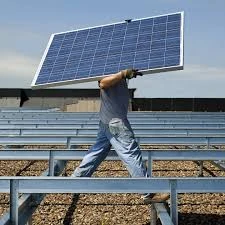solar panel cost
The True Cost of Solar Panels Understanding Your Investment
In recent years, solar energy has gained significant traction as a sustainable and eco-friendly alternative to traditional energy sources. As the global awareness of climate change grows, more homeowners and businesses are considering the installation of solar panels. However, the cost of solar panels remains a critical factor that potential users must take into account. In this article, we will explore the various components that contribute to the overall cost of solar panels and how they can affect your investment decision.
1. Initial Installation Costs
The initial cost of purchasing and installing solar panels can range significantly, depending on several factors. On average, the cost of a residential solar panel system can vary from $15,000 to $25,000 before incentives and tax credits. The price largely hinges on the size of the system, the type of solar panels selected, the complexity of the installation, and the geographical location. Different states offer varying levels of sunshine, which directly impacts the energy production capacity of solar panels, influencing their cost-effectiveness.
2. Type of Solar Panels
There are primarily three types of solar panels available in the market Monocrystalline, Polycrystalline, and Thin-Film. Monocrystalline panels are typically the most efficient and have a longer lifespan; however, they also come with a higher price tag. Polycrystalline panels offer a more budget-friendly option with slightly lower efficiency, while Thin-Film panels are lightweight and flexible but generally have the lowest efficiency and lifespan among the three. The choice of panel type will greatly influence the overall cost and energy yield of your solar installation.
3. Labor and Installation Fees
Installation costs include labor charges, which can vary widely based on the experience of the installers and the complexity of the system being put in place. Professional solar installation can account for 10% to 20% of the total system cost. When selecting a solar installation company, it’s essential to consider not only the cost but also the company’s reputation, experience, and warranty offerings. Investing in a reputable installer can ensure that the system is set up efficiently and safely.
solar panel cost

4. Incentives and Tax Credits
One of the most significant factors affecting the net cost of solar panels is the availability of government incentives and tax credits. In the United States, the Federal Investment Tax Credit (ITC) allows homeowners to deduct a substantial percentage of their solar panel installation costs from their federal taxes. Many states and local governments also provide additional incentives, rebates, or grants that can further decrease the overall expense. Prospective buyers should thoroughly research what incentives are available in their area to maximize savings.
5. Financing Options
For many homeowners, the upfront cost of solar panel installation may be daunting. However, several financing options are available to ease the financial burden. Solar loans allow homeowners to spread the cost of the system over several years while still saving on their energy bills right away. Additionally, leasing options and power purchase agreements (PPAs) let homeowners install solar panels with little to no money upfront while they pay a fixed monthly fee or purchase the energy produced at a reduced rate.
6. Long-term Savings
While the initial costs can be substantial, the long-term savings on energy bills can make solar panels a wise financial decision. With the right system in place, homeowners may see a return on investment within 5 to 10 years, after which they can enjoy years of reduced or even eliminated electricity bills. Additionally, the value of a home may increase with the installation of solar panels, making it a sound investment for the future.
Conclusion
In conclusion, while the cost of solar panels can be significant, various factors influence this expense, including installation prices, panel types, labor fees, available incentives, financing options, and long-term savings. Weighing these components carefully can help individuals make informed decisions about whether solar energy is the right choice for them. Investing in solar panels not only promotes sustainable living but can also lead to financial benefits that make this green energy solution a worthwhile consideration for homeowners and businesses alike.
-
Understanding the Advantages of Solar String Inverters for Your Energy SystemNewsApr.29,2025
-
Choosing the Right PV Inverter: A Comprehensive GuideNewsApr.29,2025
-
The Future of Solar Power: Exploring Bifacial Solar PanelsNewsApr.29,2025
-
The Complete Guide to Solar Panels: Efficiency, Cost, And InstallationNewsApr.29,2025
-
The Best Options for Efficiency and Cost-EffectivenessNewsApr.29,2025
-
Harnessing the Power of Off-Grid Solar Inverters for Energy IndependenceNewsApr.29,2025







